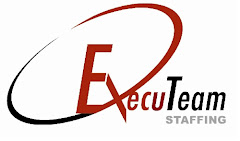I got a considerable amount of feedback on my article which exhorted job seekers to ask the following question every time they learn of someone who got hired: How can I adapt what they did to my situation?
The example I used was this: If a sales rep got hired after bringing sales leads to a job interview, what could you bring to an interview to convince employers to hire you?
One reader, Mitch in Minneapolis, took me to task, writing:
“Could you have picked a better example than sales? What could a supervisor or middle manager bring to an interview that would be different? After all, they can’t bring in sales leads to show they can do the job.”
Apparently, Mitch didn’t have the time or inclination to ask himself, “How can I adapt what they did to my situation?”
Instead, he defaulted to the common (and deadly) question, “But my job is different -- what about a tip just for me?”
I say deadly because, just as our ancestors had to adapt to survive in the jungle, you must adapt to survive in today’s treacherous job market.
Let’s simplify. There are only two ways to convince employers to hire you: perform your skills or prove them.
Either way works. And the world is full of success stories that you can adapt to your situation -- so you can get hired faster.
Here’s how …
Perform your skills
Think of American Idol. Does anyone get “hired” by Simon simply by talking about their singing skills in the interview? No. They must perform.
So, how can you perform your professional skills in a job interview?
A sales rep could make cold calls in front of the hiring manager. That’s what sales authority David Sandler did with great success when he was starting out.
A trainer I know delivered a sample lesson in a job interview -- he prepared ahead of time, did well, and was hired.
A technical writer was asked to read and edit texts in his interview -- he failed to prepare, did poorly, and was not hired.
(By the way, those last two examples were me, back in the ‘80s and ‘90s. So I speak from experience.)
If you’re a middle manager not sure how to perform your skills, ask yourself:
Why was I on the payroll at my last 2-3 jobs?
What 2-3 skills did I do most effectively?
What will be required of me in my next job?
Let’s say one of your most-valuable “middle manager” skills is team building. How could you perform those skills in an interview? You could:
lead a brief, powerful exercise in team building;
demonstrate the kind of pleasing personality that motivates others;
bring a video (or a Youtube link) of you leading a team-building seminar.
The options are endless. But you have to think and choose one yourself. That’s the hardest part -- thinking! The actual performing should come naturally.
Prove your skills
If you’ve wracked your brain and still can’t imagine how to perform in an interview, use the second method: Prove your skills.
This is relatively easy. Here are two examples …
Example #1: Eugene, a software developer from Savage, Minn.
He saw a job posted online that he really wanted. “Like most people, I thought I would email my resume and wait. But that approach had not produced any callbacks for three months, so I decided to try something different,” he says.
So he called the contact person listed in the job posting, after getting her phone number from the company switchboard. He asked if he could hand-deliver his resume. She said no.
This is where most people would give up. But not Eugene.
“I struck up a conversation [with her] and learned enough about the position to write a very targeted cover letter, which I emailed with my resume,” says Eugene.
About a week later, he called and offered to hand-deliver a portfolio of material to supplement his resume. The hiring manager accepted.
After dropping off his portfolio, Eugene met several employees in the lobby. One question led to another, and he ended up interviewing them about ways to improve their software development efforts.
Eugene then went home, wrote, and submitted to the employer a white paper of possible solutions, based on his experience and his very recent, relevant research.
In other words, he proved his skills on paper.
Result? He was hired about 21 days later.
Example #2: Bill McCausland, an executive from suburban Detroit, Mich.
Prior to his job interview, McCausland assembled testimonials from people about his work to create a two-page document, which he handed to the hiring manager.
Page one, titled “Accolades,” was culled from written recommendations from three types of people: customers, managers, and business partners.
Page two was titled “Skills Required For Success.” In researching the employer, McCausland found they needed help with project management, problem solving, and execution. So he let others speak for him. “I took quotes from past performance reviews that tied into the skills they were looking for,” he said.
In other words, other people proved his skills on paper.
Result? He was hired on September 23, 2009, only 8 days after deciding to prove his skills. “I nailed the interview, thanks to researching and demonstrating that I was already on the job,” he says.
- Kevin Donlin
Kevin Donlin is contributing co-author of "Guerrilla Marketing for Job Hunters 2.0." Since 1996, he has provided job-search help to more than 20,000 people. For a free glimpse, visit Guerrilla Job Search System DVD.
From www.Net-Temps.com
Thursday, January 21, 2010
Subscribe to:
Post Comments (Atom)




No comments:
Post a Comment